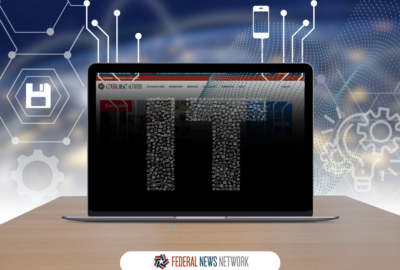Can Hewlett-Packard survive the tablet trend?
BRANDON BAILEY AP Technology Writer SAN FRANCISCO (AP) — Personal computer sales have been in a slump for years, as customers flock to increasingly powerful...
BRANDON BAILEY
AP Technology Writer
SAN FRANCISCO (AP) — Personal computer sales have been in a slump for years, as customers flock to increasingly powerful smartphones, tablets and other mobile devices. Now Hewlett-Packard, the Silicon Valley stalwart that was once the world’s biggest seller of personal computers, is splitting off its PC and printing businesses. It’s the latest shakeup in a tech industry that’s being reshaped by the mobile revolution.
IBM sold its PC business years ago. Dell took its struggles private. Can an HP spinoff focused on personal computing thrive?
“There’s a significant transformation going on in that industry, and maybe now HP can make its move,” said Forrester tech analyst Peter Burris, one of several analysts who say the iconic tech giant will need to get better at building and selling mobile gadgets if it wants the new spinoff to succeed. HP has stumbled in previous efforts to sell those devices.
HP’s split is a sign that CEO Meg Whitman sees more growth and profit opportunity in selling commercial tech products, including data-center hardware, business software and cloud services, some analysts say. That’s the business she plans to lead, as chief executive of a new company dubbed Hewlett-Packard Enterprise.
That puts more pressure on the HP Inc. spinoff, which will be led by current PC and printing executive Dion Weisler as CEO. Though it was once the world leader in both segments, HP is now No. 2 to China’s Lenovo in PC sales.
Tablets now out-sell laptop computers. And no other major U.S. tech company is focused on selling only PCs. Apple Inc.’s growth in recent years has been fueled by the phenomenal success of its iPhone and iPad devices. Dell also sells commercial computer hardware and software. Even Lenovo is purchasing IBM’s server business and taking over the Motorola smartphone division from Google Inc.
PC sales aren’t going away entirely, to be sure. There are still some cases where PCs are more useful than smaller-screen devices, especially in the workplace, said Bob O’Donnell of TECHnalysis Research. The industry sold more than 310 million desktop and laptop computers last year, and one out of six were sold by Palo Alto, California-based HP. But global sales fell 10 percent in 2013 and are likely to fall another 4 percent this year, according to the IDC research firm. PC sales should level off in 2015, forecasts O’Donnell.
“They can be profitable,” he said, “but it’s a stable, flat kind of market.”
Printer ink has been a major source of profit for HP in years past. But printing also is a stagnating business, as more people store photos and files online and view them primarily on their phones and tablets. Even so, tying the printing business to PCs should provide a stable source of revenue for HP Inc. for some years to come, said tech analyst Patrick Moorhead of Moor Insights and Strategy.
HP also could expand that business to include 3D printing systems and home networks for Internet-enabled thermostats and other gadgets, since many printers today are part of a home network, he added.
Jettisoning PCs doesn’t necessarily make Hewlett-Packard Enterprise is a slam dunk. Analysts say HP has some good data-center products, but Whitman faces challenges in upgrading its commercial software and technology services businesses.
“Does this mean a new dawn is here for Palo Alto?” asked Burris. “No, it doesn’t. It means that HP is going to have to do a lot of hard work to prove itself.”
Hewlett-Packard has posted revenue declines in 11 of the past 12 quarters and laid off tens of thousands of people in recent years as it attempts to cut costs. During its most recent quarter HP reported revenue of $27.6 billion, a 1 percent annual gain. It marked HP’s first year-over-year increase in quarterly revenue since late 2011. Printers and PCs contributed roughly half the company’s annual revenue, with the rest coming from commercial computer systems, software and technology services.
HP first considered breaking off the PC unit three years ago, when Leo Apotheker was CEO. But the idea was controversial and Whitman rejected it after she took his place in 2011 and launched a lengthy turnaround. She said Monday that HP has now shored up its business enough to support the split. The company believes the two new units will be worth more separately and be able to grow more quickly apart than they can together.
HP is expected to complete its latest round of layoffs, between 11,000 to 16,000 people, this month. Total job cuts will now stand at 55,000, up from a planned 50,000. In an interview with CNBC Monday, Whitman left open the possibility for further layoffs as the separate businesses determine their cost structure going forward.
HP shares rose almost 5 percent to close at $36.87. The stock is up nearly 32 percent since the beginning of the year.
Copyright 2014 The Associated Press. All rights reserved. This material may not be published, broadcast, rewritten or redistributed.
Copyright © 2025 The Associated Press. All rights reserved. This website is not intended for users located within the European Economic Area.






